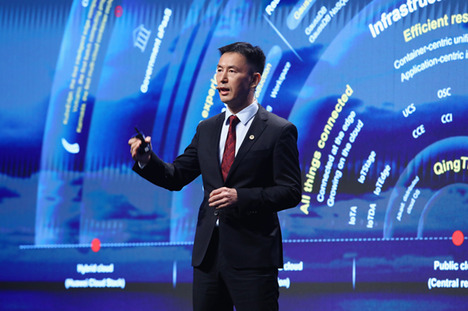
HUAWEI CONNECT 2022, themed “Unleash Digital”, kicks off in Dubai today. Industry leaders, experts, partners, and guests from the Middle East and Africa gather to share their thoughts on technological innovation, ecosystem collaboration, and digital transformation. Ken Hu, Rotating Chairman of Huawei, delivered a keynote speech under the conference theme and called for enterprises to “embrace cloud for leapfrog development” for digital transformation. Joy Huang, President of Huawei Cloud Computing Strategy & Industry Development, delivered a speech “Unleash Digital with Everything as a Service”.
Mr. Huang said that greener infrastructure, continuous innovation, and shared experience are the paths to digital transformation.
Huawei Cloud marks its presence with innovations in native technologies. At this event, three cloud native products are released globally: CCE Turbo for container engine,UCS for ubiquitous cloud native and GuassDB. CCE Turbo accelerates computing, networking, and scheduling to achieve ultimate scalability. For example, it helps Sina Weibo easily cope with traffic bursts by scaling out 3,000 pods in just one minute. UCS enables users to manage cloud native applications across clouds and regions with one consistent experience. GuassDB has been re-architected to become serverless, and now you can scale your GaussDB automatically in seconds. It’s part of our Backend as a Service plan.Many enterprise applications have to process hybrid requests. For example, a financial application may need to process loans and analyze transaction data as well.
To unleash the real-world potential of AI, Huawei Cloud focuses on three core AI technologies: foundation models, solvers, and knowledge computing. Huawei Cloud worked with partners to develop the Pangu NLP model for the Arabic language that supports hundreds of billions of parameters. The semantic understanding accuracy reached 95%. The OptVerse AI Solver combines operations research and AI, improving the solution speed by 100 times and modeling efficiency by 30 times. The upgraded knowledge computing provides a faster path to combine industry knowledge with AI, and integrates knowledge acquisition, modeling, management, and application all in one place, greatly improving the efficiency of using AI.
Application modernization is a must for digitalization. To ease this process, Huawei Cloud launches four pipelines for software development, data governance, AI development, and digital content production. Huawei Cloud also dives deep into digital technologies and distills them into aPaaS services to customers. At this event, two new core aPaaS services are released: KooMessage and KooSearch.
As a constant innovator, Huawei Cloud hopes to support customer growth with the cutting-edge technologies.
Unleash Digital Productivity and Embrace Cloud
At the Huawei Cloud TechWave Summit held on the same day, Jacqueline Shi, President of Marketing and Sales Service of Huawei Cloud, delivered an opening speech. She pointed out that the key to unleashing digital is to embrace the cloud, and cloud native is the way to realize digital transformation.
Following the “Everything as a Service” strategy, Huawei Cloud builds full-stack cloud native services covering Infrastructure as a Service, Technology as a Service, and Expertise as a Service. Huawei Cloud shares localization experience gained from global services, as well as the insights into businesses and industries in major regions, all of which constitute advanced technologies and solutions to serve more customers in a wider range of industries. “The key to making the most of cloud is to think cloud native, act cloud native. Cloud native has the path to agile and modern applications.” said Jacqueline. To provide better local support, Huawei Cloud has built 70 AZs in 27 Regions around the world and rolled out 92 cloud services in the Middle East. Huawei Cloud is launching new Regions in Saudi Arabia and Egypt, another effort of Huawei Cloud to enlarge its global network and provide customers in the Middle East and Africa with more secure, stable, and low-latency networks.
Drive Productivity with Digital Technologies
Human society is becoming digital and intelligent, presenting both challenges and opportunities. Frank Dai, President of Huawei Cloud Middle East, delivered a keynote speech “Inspire Innovation with Everything as a Service”, introducing Huawei Cloud’s approach to help customers in the Middle East make the most of cloud, improve digital resilience, and go further in digital transformation.
Cloud features efficiency, convenience, and scalability, much beneficial to digital transformation for enterprises. Frank said that countries in the Middle East have realized the value of cloud to digital economy. Building a digital infrastructure is essentially to make the most of cloud. Cloud once meant elastic computing resources to enterprises, who used IaaS services mostly. Now, cloud capabilities branch out to emerging fields such as AI, application development, and big data, with integrated development tools and consulting services accessible whenever needed. Huawei has shifted from helping you “migrate to a good cloud” to “make the most of cloud”.
The local ecosystem is an indispensable force to digital transformation. According to Mr. Dai, in the Middle East, Huawei Cloud will work with stakeholders to develop the local digital ecosystem in three aspects, including building industry-specific digital capabilities, cultivating digital talent, and providing support for SMEs.
Dr. Tian Qi, academician of the International Eurasian Academy of Sciences, IEEE Fellow, and chief AI scientist of Huawei Cloud, introduced Huawei Cloud’s innovations in Enterprise Intelligence (EI) services and described the value and potential of AI for scientific research, production, and daily life. Dr. Tian said, “AI for Science brings not only tech breakthroughs, but a total changeover in scientific research methods. It will help scientists overcome bottlenecks and leapfrog the technical gap.”
Full-Stack Architecture Innovation and Ubiquitous Cloud Native
Cloud native is becoming the preferred choice for enterprises to move to the cloud, previously by Internet companies and now enterprises in traditional industries. Cloud native is poised for full-fledged development.
William Dong, President of Huawei Cloud Marketing, pointed out that in the future, applications, data, AI models, and digital content will become the core assets of a digital and intelligent enterprise. Enterprises will develop, run, and manage these resources in a converged pipeline, and cloud native will be the technology to help businesses navigate uncertainty.
Based on its own technical innovations and practices, Huawei Cloud believes that enterprises are not just migrating to the cloud, but also building on the cloud. Therefore, cloud native covers not only microservices, Kubernetes, and containers, but also big data, AI, and media services. This is called Cloud Native 2.0. Huawei Cloud provides a full-stack cloud native solution with leading capabilities.
Mr. Dong said that Huawei Cloud will dive deeper into cloud native and stay open to enrich its cloud native service portfolio. Huawei Cloud not only provides high-performance, stable, and reliable cloud native infrastructure, but also provides easy-to-use tools and pipelines easily accessible for application development, AI, big data, and digital content production during digital transformation. Huawei Cloud plays an active role in open source for cloud native development. In 2015, Huawei became the only CNCF founding member from Asia. Huawei keeps contributing to the community, ranking No. 1 in Asia and No. 6 in the world by committed code.
To extend cloud native to wherever customers run their services, Huawei Cloud, with its global layout and software-hardware synergy, overcomes geographical restrictions, abstracts away the differences of underlying IT resources, and eases global service deployment and management for customers. Cloud native is the path Huawei Cloud takes to realize Everything as a Service.
At the event, Huawei Cloud released the Cloud Native 2.0 Architecture White Paper, aiming to enable local customers with full-stack cloud native capabilities to take a quantum leap to the future.
Image captions:
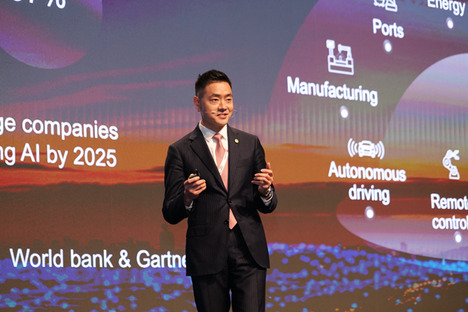
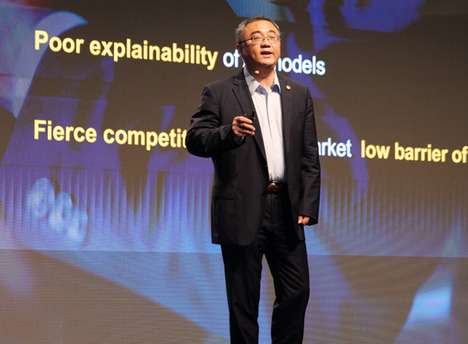
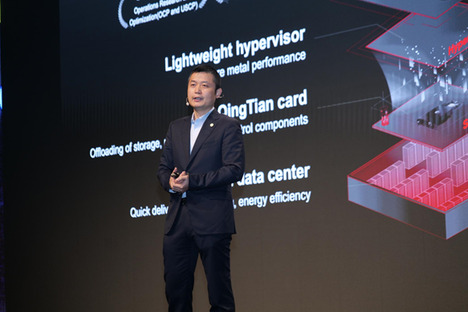
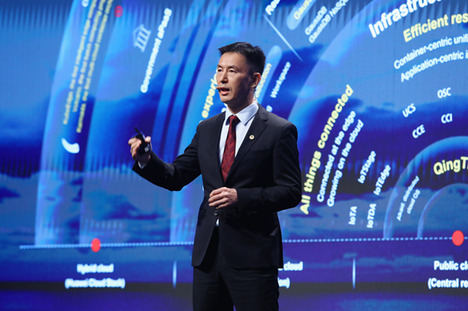
Joy Huang, President of Strategy & Industry Development, Huawei Cloud 
Jacqueline Shi, President of Global Marketing and Sales Service, Huawei Cloud
Leave a Reply